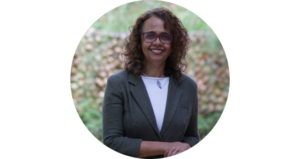
Residency Period: March 1, 2023 and February 28, 2024
Department of Social Communication – FAFICH – UFMG
Rousiley C. M. Maia is a Full Professor at the Department of Social Communication at UFMG. She obtained her Masters and Doctorate in Political Science from the University of Nottingham, and a postdoctoral degree from Boston College, USA. She is part of the team of principal researchers at the National Institute of Science and Technology in Democracy and Democratization of Communication (INCT / IDDC); Research Project “Democracy Machine”, Penn State University, USA; and the National Institute of Science and Technology in Disputes and Informational Sovereignties (INCT/DSI).
She is the author of “Deliberative System and Interconnected Media in Times of Uncertainty” (with G. Hauber and T. Choucair, Palgrave, 2023) “Deliberation across Deeply Divided Societies: Transformative Moments” (with J. Steiner, M. C Jaramillo, S Mameli, Cambridge University Press, 2017); “Recognition and the Media” (Palgrave, 2014), “Deliberation, the Media and Political Talk”(Hampton Press, 2012), “Media and Deliberation” (FGV, 2008), “Communication and Democracy” (with Wilson Gomes, Paulus , 2008).
She has coordinated bilateral cooperation projects with the University of North Carolina, USA and the University of Bern, Switzerland (2017-2021, Capes, CNPq), University of Mannheim, Germany (2013-2018, CNPq / DFG); University of Beira Interior, Portugal, (2010-2012, Capes/FCT), UFBA (Procad/Capes) and University of Stockholm, Sweden. Her work has been published in journals such as European Political Science Review, Political Studies; Policy Science; Journal of Public Deliberation, Human Communication Research, Journal of Computer-Mediated Communication, Journal of Communication, International Press Politics, Representation, Journal of Political Power, among others.
INNOVATIONS FOR LEARNING DELIBERATIVE SKILLS IN SCHOOLS – SHARING PHASE II
This project deals with the implementation of the first experience in Brazil of a program to train and develop deliberative capacities – skills to justify preferences and values; reciprocal and attentive listening; mutual respect, among others. Phase I involved an experiment with treatment and control groups, with more than 500 students from public schools in Belo Horizonte (MG) and Belém (PA), between 2017 and 2020. Based on the knowledge already accumulated, Phase II has for the purpose of expanding resources and diversifying mechanisms for learning deliberative capacities. To this end, a set of actions will be developed in public schools in four geographic regions of the country, Minas Gerais, Pará, Bahia and Paraná. It is also intended to develop an online and mobile version of the game “What profile is this?” and digital platforms for discussion about the experience among participants from associated schools
When dealing with the fight against disinformation and disrespect, the “Innovations” project assumes that the self-expression of students to explain the principles and attitudes that make the discussions of controversies more democratic will have an even more positive effect in the classrooms, in mitigating of conflicts in the school environment and its surroundings. By combining different pedagogical strategies – teaching with instruction by participants, games and authentic debates – the project, now with an emphasis on digital resources, will be able to generate long-term impacts and contribute to the formulation of public policies aimed at promoting human rights that recognize the local injustices.
Developed by teams of researchers from UFMG, UFPA, UFTPR, UFOB
Two videos about the first phase of the project are available at this address. (https://www.youtube.com/playlist?list=PLQ6eGEd4v2iBiiu7mrKrZvpCaetdTUbzV).
All material produced will be made available for replication of the project in other Brazilian schools (https://legadocompartilha.wixsite.com).